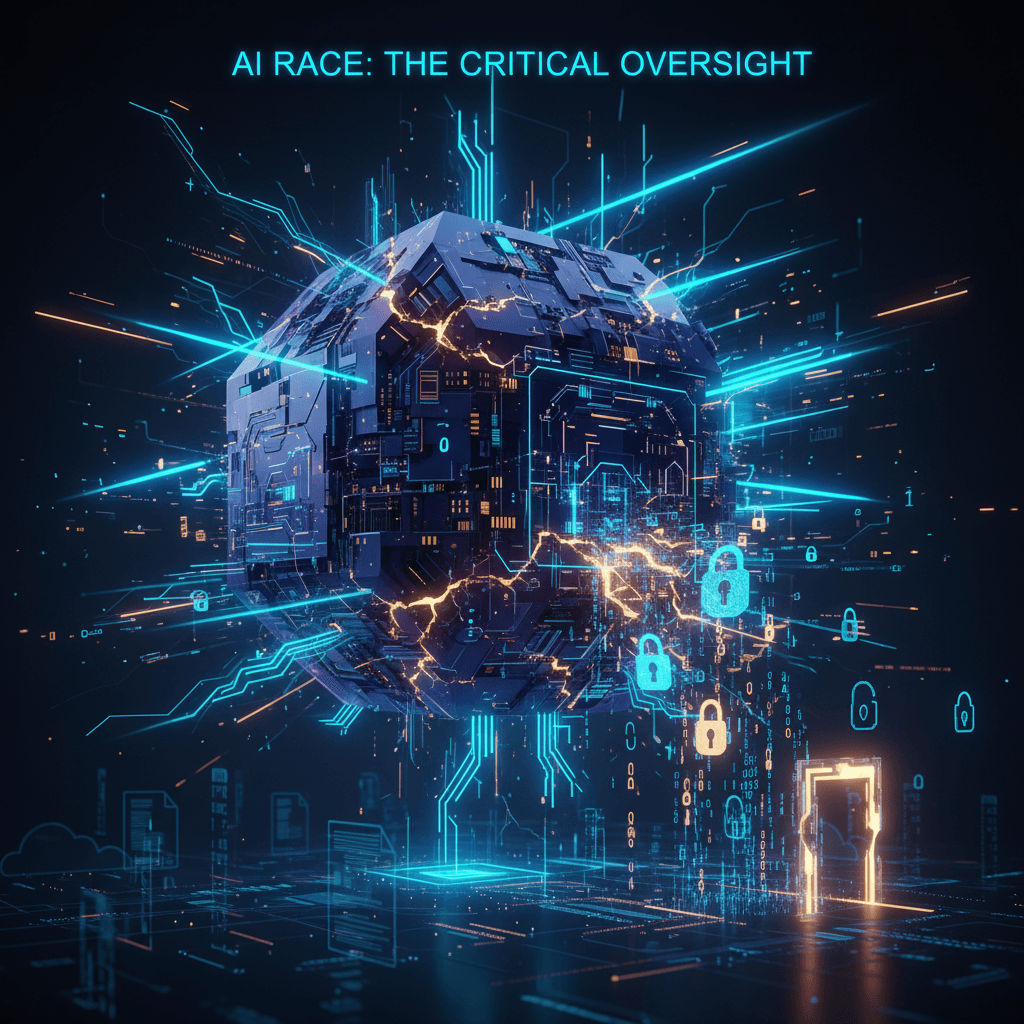Top AI Firms' Speed Race Exposes Billions in Critical Data, Says Wiz
Under intense pressure, AI innovators are inadvertently exposing deep-seated secrets, risking over $400 billion in models and data.
November 11, 2025

In the global race to dominate the artificial intelligence landscape, speed is paramount, but a new report suggests this velocity is leading many top AI firms to neglect fundamental cybersecurity practices. Groundbreaking research from cloud security company Wiz has revealed that a significant majority of leading private AI companies are inadvertently exposing sensitive information, creating substantial security risks. The study analyzed the 50 leading AI firms, as listed by Forbes, and found that a startling 65 percent had leaked verified secrets on the code-hosting platform GitHub.[1][2][3][4][5] These exposures are not trivial, involving API keys, authentication tokens, and other sensitive credentials that could provide malicious actors with direct access to critical systems.[1][2][6] The collective valuation of the companies with these verified leaks exceeds $400 billion, highlighting the immense financial and intellectual property at stake.[2][6][5]
The nature of the leaked secrets is particularly concerning, as they are often buried deep within code repositories where standard security tools fail to look.[1][4][5] Wiz researchers employed a deep scanning methodology that went beyond typical surface-level analysis, examining the full commit history, including deleted forks, gists, and the personal repositories of developers associated with the AI companies.[1][2] This comprehensive approach uncovered credentials linked to platforms crucial for AI development, such as Weights & Biases, ElevenLabs, and Hugging Face.[1][2] Such leaks could potentially expose invaluable assets, including the very training data that underpins AI models, private and proprietary models themselves, and detailed organizational structures that could be exploited in social engineering attacks.[1][2][7][6] In one instance, a leaked Hugging Face token belonging to a major AI company could have granted access to approximately 1,000 private models.[7] The issue is pervasive, affecting even companies with a small public footprint; one firm with no public repositories and only 14 members was found to have exposed data.[1][3]
The intense pressure of the AI race is a primary driver behind these security oversights. In a fiercely competitive environment, developers are often encouraged to prioritize rapid innovation and deployment over meticulous security hygiene.[8] This "vibe coding" culture can lead to careless mistakes, such as committing plaintext credentials directly into code repositories.[7] The problem is compounded by a significant gap in governance and a lack of AI-specific security expertise.[8][9][10] A survey by Venafi revealed that while 83% of organizations use AI for code generation, 47% lack policies for its safe use.[8] Furthermore, many security teams feel ill-equipped to manage the pace and complexity of AI development, with 31% of security leaders citing a lack of AI security expertise as their main concern.[9][10] This creates a scenario where security is often an afterthought rather than an integral part of the development lifecycle, leading to easily preventable errors like exposed API keys.[5]
The implications of these widespread security failures are profound and multifaceted. For the AI companies themselves, the direct risks include the theft of intellectual property, the compromise of sensitive corporate and customer data, and significant reputational damage. The exposure of API keys for services like ElevenLabs and LangChain effectively hands attackers a "golden ticket" to bypass defensive layers and access core systems.[2][6][5] Beyond the individual firms, this trend poses a systemic risk to the broader technology ecosystem. As larger enterprises increasingly partner with and integrate technologies from these innovative AI startups, they may inadvertently inherit their poor security posture.[5] The issue is further exacerbated by a poor disclosure landscape; Wiz reported that in almost half of the cases where they attempted to disclose a vulnerability, the message either failed to reach the target company due to the lack of an official disclosure channel or simply received no response.[1][2][3][4]
In conclusion, the findings from Wiz serve as a critical wake-up call for the artificial intelligence industry. The relentless pursuit of innovation has created a culture that often sidelines essential security protocols, resulting in widespread and high-risk exposure of sensitive credentials. The problem is not merely technical but also cultural, rooted in the immense pressure to stay competitive and a lagging adoption of AI-specific security frameworks. While some firms have demonstrated the ability to maintain a strong security posture regardless of their size or public footprint, the prevalence of these leaks across the industry's top players indicates a systemic issue.[1] Addressing this will require a concerted effort from AI companies to integrate robust security practices from the outset of development, establish clear channels for vulnerability disclosure, and foster a culture where security is not seen as an impediment to speed but as a fundamental component of sustainable innovation. Without such a shift, the very tools poised to revolutionize the future could become a significant source of security vulnerabilities.